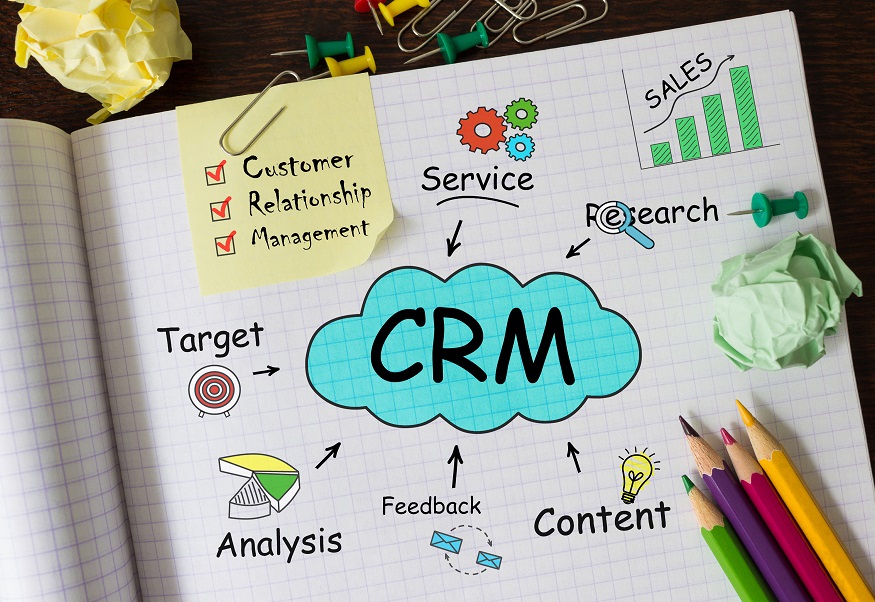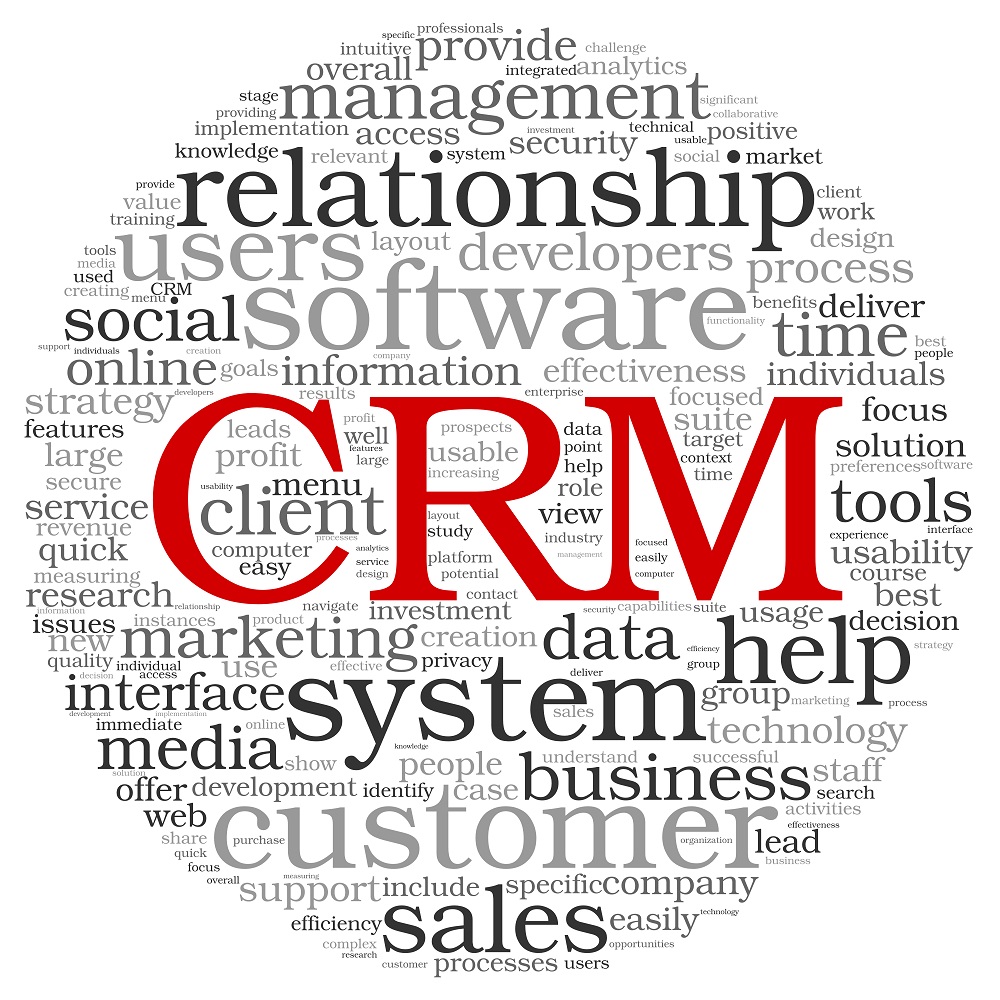
Many small businesses are looking for CRM software to help them manage their customer relationships. This blog post discusses 7 steps that will guide you through the process of selecting and implementing CRM software for your business. We cover some of the best CRM’s available on the market today, as well as provide a checklist to help you make sure you have all bases covered before making a purchase decision.
1. What is CRM?
CRM stands for Customer Relationship Management and refers to the software used by a small business or organization to help manage their customer relationships. CRM’s provide businesses with an important set of tools that allow them to grow their sales while maintaining strong customer service.
CRM software tracks the interactions that a customer has with your business, and uses this information to create personalized marketing campaigns.
Most CRM’s include inbuilt features for measuring how satisfied customers are with their experience of dealing with your company. These measurements can then be used to improve existing processes or modify future ones to increase satisfaction.
A CRM is an all-in-one solution that can be used to manage customer relationships. They are usually designed with the small business owner, or a manager of a small team in mind and provide tools for sales, marketing, and service teams so they can work together more efficiently.
2. Research the Basics of CRM Software
If you are not sure where to start, try looking at CRM software reviews and blogs. This will give you some insights into the pros and cons of various CRM’s on offer today. You can also take a look at CRM’s that your friends use to get an idea about what might work best for your small business from their experience.
CRM’s for a small business are vital to maintaining customer relationships and increasing sales, so you must research your options thoroughly before making a purchase decision. The following checklist will help you make sure that the CRM of choice has all the features required by your small business:
– Does this CRM work on all platforms?
– Does it have the right pricing tiers?
– Can I try out CRM before making a purchase decision?
– Do CRM’s integrate with other programs that my company uses, such as Mailchimp and Quickbooks Online?
- Explore the Software Compatibility
Does this CRM integrate with other programs? You may want a CRM that integrates seamlessly with Mailchimp or Quickbooks Online – there are lots of CRM’s that offer this.
3. Check Additional Features and Documentation
You should also check the additional features available with your CRM, as well as reading through any documentation to make sure you know how to use it properly.
When looking at these features, think about what would be best for your business – Do all of the customer interaction needs that you have for your small business already exist on the CRM? If not, what are some additional features that would be helpful to include to cover all bases?
- Consider Implementation
How long will it take for CRM’s implementation after purchase? You may want CRM software where you can try it first before buying. Check how much time will be required for implementation after purchase.
We cover some of the best CRM’s available on the market today, as well as provide a checklist to help you make sure you have all bases covered before making a purchase decision.” So far we talked about what CRM stands for and why it’s important for small business owners. We also covered some of the CRM’s available and have provided a checklist to help you make sure that your CRM has all bases covered.
- Check the Company Reputation
Before you make a purchase decision, it is important to do some research into the CRM’s company reputation. One way of doing this is by reading CRM’s reviews and blog posts on different CRM’s online, as well as checking out what your friends have to say about their experience with them.
- Look for CRM’s that Offer What You Need
Before you make a purchase decision, it is important to do some research into the CRM’s available and what each one of them offers. You should also think about whether or not your needs are already covered by existing CRM’s before making a purchase decision – if they aren’t then look for features that might be helpful to fully cater to all of your small business needs.
4. Tips to Buy CRM Software for Your Small Business
Research the Basics of CRM software and what it can offer you in terms of features, integration with other programs that are used by your company, pricing brackets and whether or not it has a free trial option so you can take it out for a spin before making your purchase decision.
Also take a look at CRM reviews and blogs that are written online to see what other users think of the CRM’s offered, as well as reading through any documentation to determine how best to use it for your small business needs.
Before you make a final choice on which CRM software will be right for your small business, you should also consider the CRM’s company reputation.
Look for CRM’s that offers what you need and make sure it doesn’t have any negative reviews or blog posts written about its CRM software
- Mobile-friendly CRM Software
Mobile-friendly CRM software is becoming more and more important for small business owners. If you want a CRM that will work on your phone, tablet or even desktop computer, make sure to look at the best CRM’s with mobile compatibility before making a purchase decision.
When looking for CRM’s, you should research the basics of what CRM software is and what it offers in terms of features, how much time will be required to implement after purchase, pricing brackets and whether or not there are any free trial options available. You should also look at CRM reviews that have been written online by other users of CRM’s, as well as reading through any CRM documentation to figure out how best to use it for your small business needs.
- Set the Company Goals
Before you make a CRM purchase decision, it is important to figure out what your company goals are and how CRM’s will help with that. For example, if you’re looking for CRM’s software that can integrate seamlessly into your existing business system or website so everything is in one place then this needs to be taken into consideration when choosing which CRM’s to buy.
5. Tips for Buying CRM Software: Know Your Company Goals
Before making a CRM purchase decision, it is important to make sure you know what your company goals are and how CRM’s will help with that. For example, if you’re looking for CRM’s software that can integrate seamlessly into your existing business system or website so everything is in one place then this needs to be taken into consideration when choosing which CRM’s to buy.
- Consider the CRM Features
When looking for CRM software, it’s important to also consider what features are offered by each CRM and how much they will cost you. Some of these features include integration with a website, customer loyalty programs and integration with other CRM’s.
- Compare Price of CRM Software
When it comes to CRM software, there are a variety of price brackets available. It is important before making your purchase decision that you compare the prices for all different types of CRM’s to find one which will work best with your budget.
- Plan Your Implementation Strategy Ahead
If this is going to be an implementation project within your company, it is important to plan ahead of time and download CRM tutorials or CRM videos to properly implement the CRM’s. As well as this, you should get a list together of any potential questions that might arise during implementation so you can find out what your options are for resolving these issues before they become an issue.
- Integration with Existing System
Before buying CRM software, you should also make sure that the CRM’s will integrate seamlessly with your existing systems so everything is in one place. Many CRM’s offer options for this type of integration but it’s important to do your research and figure out which CRM best suits what you need before making a purchase decision
- Free CRM Software Trials
If you want to try CRM software without spending a lot of money, it is important to research and find out if any free CRM’s are available for trial. It’s worth looking into these as some CRM’s offer 30-day trials while others may only offer 15 days or less.
6. Take the Time to Check Out CRM Reviews
Many CRM’s will have CRM reviews written by other users which can be an excellent way to find out what the CRM’s is like and whether or not it’s a good fit for your small business needs.
Implementation Strategy: You must plan ahead of time and download CRM tutorials, videos, and CRM documentation to properly implement the CRM’s. As well as this, you should get a list together of any potential questions that might arise during implementation so you can find out what your options are for resolving these issues before they become an issue.
Integration with Existing System: You MUST make sure that the CRM’s will integrate seamlessly with your existing systems so everything is in one place. Many CRM’s offer options for this type of integration but it’s important to do your research and figure out which CRM best suits what you need before making a purchase decision
Take the Time to Check Out CRM Reviews: It is also very helpful if you take some time to check out CRM reviews to get more information on the CRM’s you are interested in. Many CRM’s will have these written by other users which can be a good way of finding out what the CRM’s is like and whether or not it’s a good fit for your small business needs.
7. Why do I need CRM?
CRM software is a necessity for any small business looking to grow in today’s competitive market. CRM’s can help you save time by allowing you to manage your contacts, track leads and conversions, enter new customer information as soon as it comes in and more!
What CRM features should I look for?
When it comes to CRM software, there are many features that need to be considered before making your purchase decision. These include: CRM customer support, CRM training and education options, CRM analytics or reports, integrations with other systems you use in your business
CRM Types: There are a variety of CRM’s which can be purchased for one’s small business including email marketing CRM’s, customer relationship management software (CRM’s), CRM’s for project management and more
CRM Features: Before buying CRM software, one must consider the various features of the CRM’s they are interested in. These include CRM customer support options, CRM training or education opportunities, CRM analytics/reports available and integrations with other systems you use to run your business.
What CRM features should I look for?
There are many CRM software features to consider before making your purchase decision. These include CRM customer support, CRM’s training and education opportunities, CRM’s analytics or reports available as well as integrations with other systems you use in running your business.
Contents




